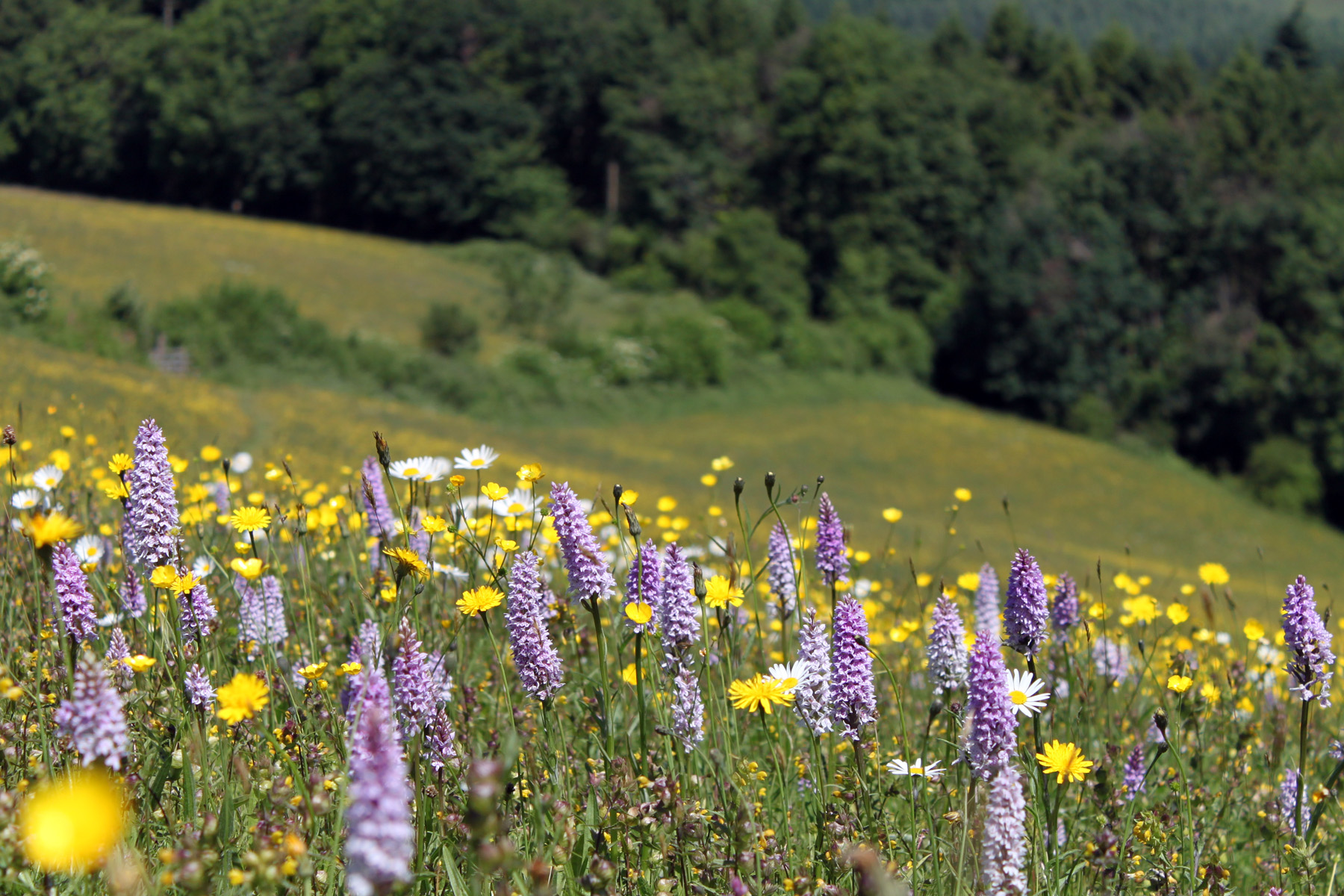Jo Riggall’s Grassland Gap talk in February highlighted that grassland is often the poor relation compared with peatland and woodland and this is clearly the case when we look at research evidence about the role of diverse, deep rooted, well rested swards and the ecosystem services they provide in addition to food production. With Environment Agency funding hosted by Herefordshire Wildlife Trust in collaboration with Nikki Yoxall of PFL, Floodplain Meadows Partnership(FMP), Plantlife and Herefordshire Council we have documented what is known, where are the gaps and scoped future research projects.
Existing research is already available to support more nuanced grassland policies in England to promote innovation in the grassland sector and to provide benefits across the wider landscape. Support payments in SFI and CS should reflect the ecosystem services being provided by permanent diverse grassland swards alongside the short term options for diverse swards in intensive livestock and arable systems.
Herefordshire Meadows fed into research propositions that DEFRA are working up into methods of farming phosphate out of Wye catchment soils. And we are very grateful to leading research scientists with experience of the Wye catchment from Lancaster University and FMP who have research propositions ready for when funding opportunities arise
- Future research will avoid single issues / variables such as mob grazing, or permanent vs temporary grassland and will include additionality and multivariate analysis as part of the design
- Research looking at the impact of mob grazing must include a range of sward types including deep rooting grasses and herbs rather than shallow rooting ryegrass swards so that positive outcomes have the opportunity to be expressed
- Collaboration and the use of standardised methods of data sampling and analysis will enable short ( 3 – 5 yr) research projects to be comparable over extended time
- farms who have adopted novel management practices for longer periods as well as recent adopters can be compared over longer time periods without the need for long term funding through the use of multivariate analysis of metadata sets.
- This may be supplemented with paired plot experiments carefully designed to evaluate multiple factors including grassland sward diversity, rooting depth and grazing management systems.
- There is huge potential for ecologists and researchers to work in closer collaboration with innovative livestock farmers. This would help ensure that research sets out to answer the questions to which farmers are seeking answers – rather than trying to catch up with the innovations that early adopters have already started to implement
- Experimental design will be evolved that allows farmers to retain the ability to be adaptive during the evaluation of adaptive multi-paddock / holistic / rotational grazing systems without imposing limits during the experiment. This means that the data gathered cannot be a true reflection / expression of such grazing systems when working effectively.
- Results from future experiments should therefore have less “noise” and be more conclusive. The aim is to provide a wide range of strategies other than the status quo and to challenge widespread and demoralising misconceptions eg that tree planting is the main solution to the ecological and climate crises.
Please get in touch with Caroline Hanks if you would like to be involved in future research on your land or for a copy of the evidence gap paper.
